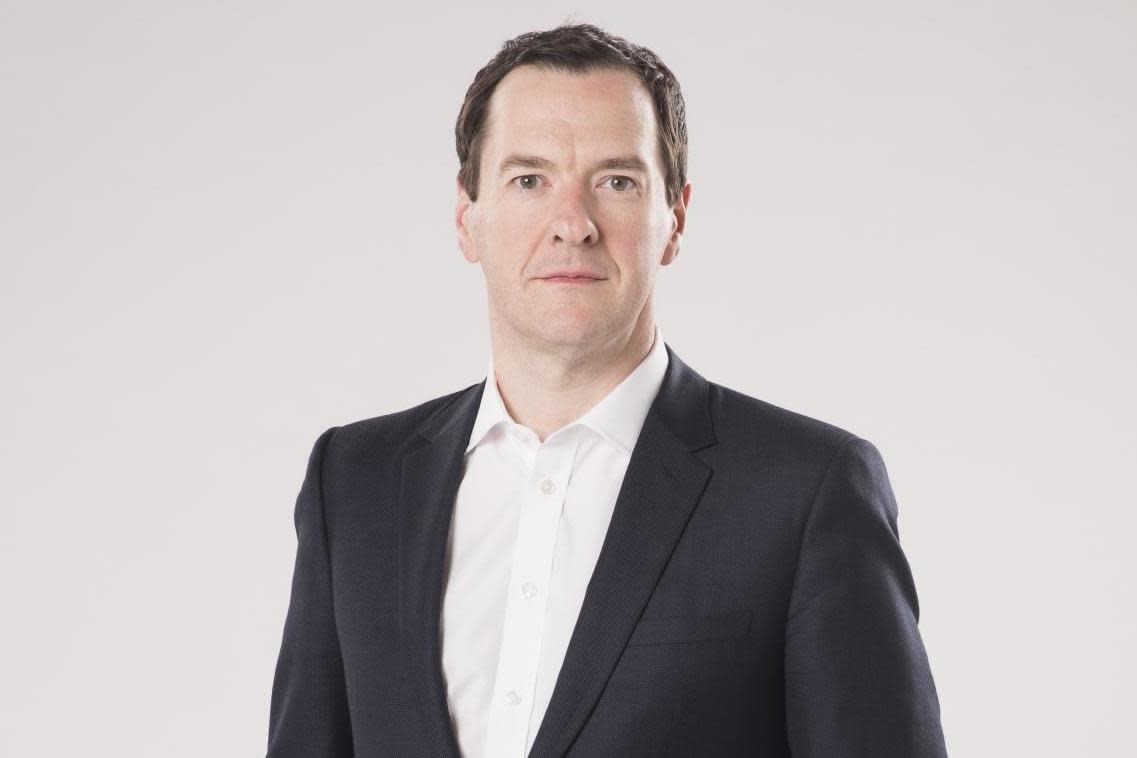George Osborne: Ignore the blockheads, as lockdown lifts there are reasons to be cheerful

When Ian Dury and the Blockheads released Reasons to be Cheerful, Part 3 on July 20 1979, they gave the nation 39 things to smile about: from equal voting rights and a cure for smallpox to Elvis, claret and sex.
The dire state of the economy at the time and the recent election of a Conservative government somehow didn’t make the cut. On July 8 2020, this Wednesday, Chancellor Rishi Sunak will be announcing his own list of measures to make people happy.
It’s part 3 for him too — after an underwhelming budget in early March, and an overwhelming, impressive furlough and loan scheme a couple of weeks later. The theme tune will be: we’re not going back to the unemployment of the 1980s or the austerity of the last decade; this time it will be different.
Boris Johnson is no Margaret Thatcher; this Cabinet is not like the one we had 10 years ago. On that most people will agree.
Westminster imbues these occasions with great significance, because it suits MPs to believe that they dictate the affairs of the nation. It suits Fleet Street to connive in the pretence by splashing the juicy pre-briefed morsels. I know, because I’ve played in both games.
The good news is this: there are reasons, if not to cheer, then at least to be optimistic
But the truth is that the big economic dice have already been thrown, here and across the western world. And the good news is this: there are reasons, if not to cheer, then at least to be optimistic.
First, it looks like the crash isn’t as bad as everyone feared. It’s all relative. We’ve still experienced the biggest drop in GDP in our recorded history — around 25 per cent in the first third of this year. That’s because we did something that societies in the past faced with a pandemic were never rich enough to do: we deliberately shut down parts of our economy to stop people getting sick.
The closed shops, theatres and restaurants were all too visible. But remember, large parts of that economy kept functioning even in the depths of the lockdown — like financial services, tech and the public sector. Now, it looks as though the recovery has been underway for three months, and happening faster than many economists expected.
According to the chief economist of the Bank of England, a V-shaped recovery is more likely, with the cumulative loss of annual GDP around half of what was forecast. In part, that’s because the lockdown has been eased sooner than assumed, especially outside the UK. But, it’s also because economic models often miss a key factor: human ingenuity and adaptation. We changed our behaviour; we adapted our workplaces; we sped up digital.
Second, the job losses may not be as bad as everyone feared. gain, that’s not to say unemployment won’t shoot up — and for a lot of people who lose their jobs, or fear losing them, these are truly awful times.
Furlough has delayed the impact, but as the Prime Minister first told the Evening Standard, we can’t keep people in suspended animation. If someone hasn’t got a job to go back to, or a business is going to fold, the sooner that truth is acknowledged, the sooner they can look for a new one, begin training or start a new business.
Re-deploying people’s talents and their capital quickly is the key to a dynamic labour market and full employment. When Dury was composing his song, Britain was facing a horrible moment of truth: most of the things people were doing, like making steel and mining coal, could be done cheaper and better elsewhere in the world. That is not the case now.
The last decade has shown that full employment is an achievable goal, as is a better educated workforce. Covid has not changed that — it’s just accelerated the change in where the jobs will come from.
Third, the tough decisions coming on tax and spending are inevitable — but they don’t have to take effect now. That’s because the central banks in London and Washington have acted with even greater speed than they did during the financial crisis. They are creating the space for everyone to borrow in the billions.
We fixed the roof in the good years precisely so we could. That doesn’t mean we won’t have to confront the truth that as those good years return, the repair job will have to start again. But honest political leadership can bring the country with it again when that happens, and help us all adapt to the change that Covid has accelerated.
We’ve just got to make sure that the blockheads don’t prevent it — or else there won’t be much cheer about.
George Osborne is former chancellor and the Standard’s Editor in chief

 Yahoo News
Yahoo News 
